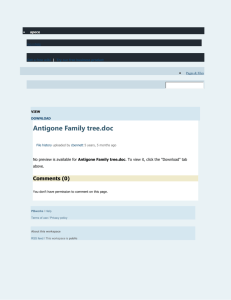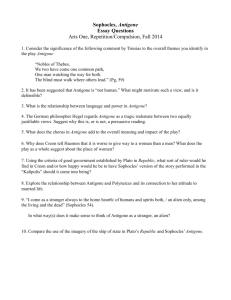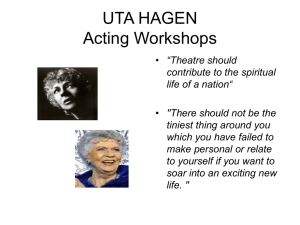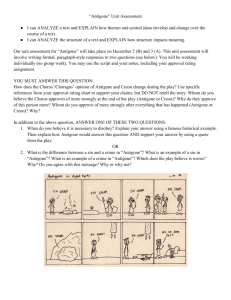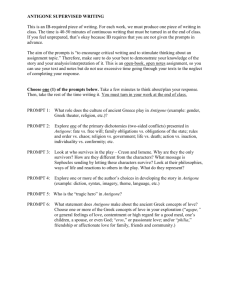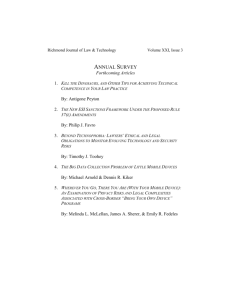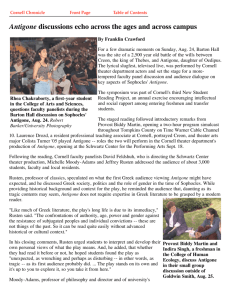Antigone Individual Reader-Response Journal
advertisement
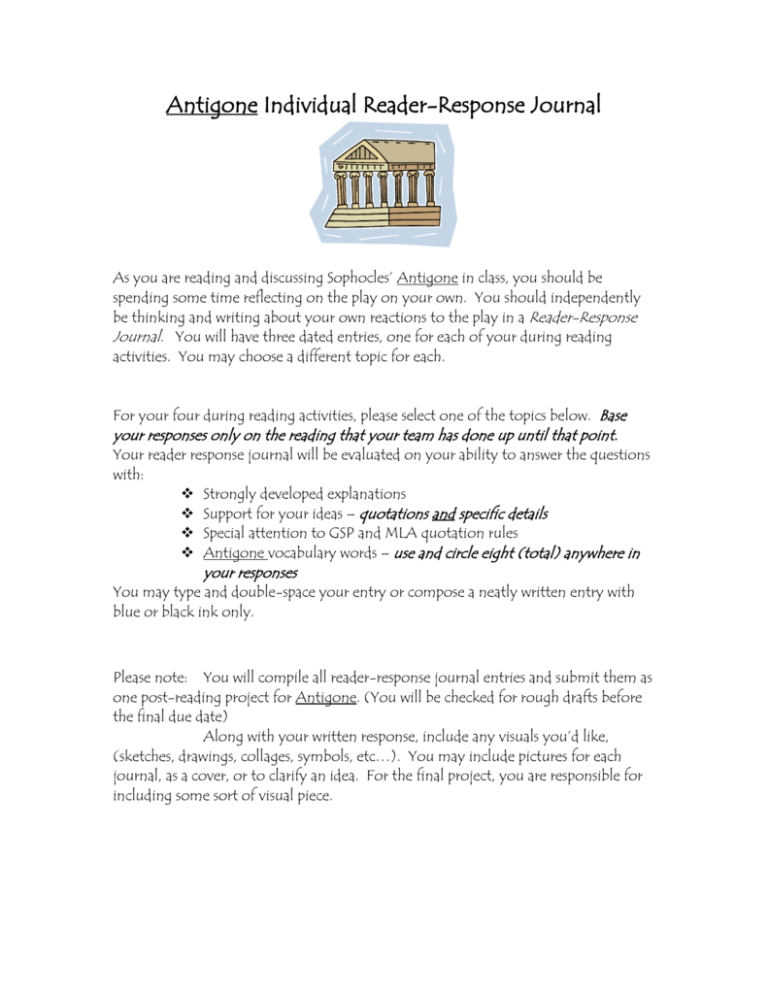
Antigone Individual Reader-Response Journal As you are reading and discussing Sophocles’ Antigone in class, you should be spending some time reflecting on the play on your own. You should independently be thinking and writing about your own reactions to the play in a Reader-Response Journal. You will have three dated entries, one for each of your during reading activities. You may choose a different topic for each. For your four during reading activities, please select one of the topics below. Base your responses only on the reading that your team has done up until that point. Your reader response journal will be evaluated on your ability to answer the questions with: Strongly developed explanations Support for your ideas – quotations and specific details Special attention to GSP and MLA quotation rules Antigone vocabulary words – use and circle eight (total) anywhere in your responses You may type and double-space your entry or compose a neatly written entry with blue or black ink only. Please note: You will compile all reader-response journal entries and submit them as one post-reading project for Antigone. (You will be checked for rough drafts before the final due date) Along with your written response, include any visuals you’d like, (sketches, drawings, collages, symbols, etc…). You may include pictures for each journal, as a cover, or to clarify an idea. For the final project, you are responsible for including some sort of visual piece. Topics: 1. Can you connect any of the characters, conflicts, thematic issues, setting, etc. with something else you’ve seen, heard, discussed, studied, and/or read before, in other classes, or in your life? 2. Choose one character, and discuss how s/he reveals something about the values, issues, and/or dilemmas of the human condition (THEME). Incorporate theme topics and statements into your discussion. 3. With which character do you identify most closely? Explain. 4. Compare and contrast two characters. As a source of comparison, consider the characters’ personality traits (your inferences), needs and values. 5. Discuss the function/purpose of one, or more, of the minor characters in the play. 6. Select, and cite, one choral ode, and discuss its meaning. (Consider and incorporate the meaning of the Chorus’ allusions into your discussion.) 7. Explain the triangular conflict of the play. (Consult the introduction and notes.) 8. Discuss how the Oedipodean family history impacts Antigone’s life. 9. Share a personal anecdote that connects a major theme in Antigone with your own life. Be sure to explain the specifics of how your life experience and the play’s major theme compare and contrast.. 10. Think about your knowledge and understanding of Ancient Greek times, Greek theater, and Sophocles’ life. A) What inferences can you make about this play’s cultural/human representations of its time? (What role did the literature play then, and what did it represent?) B) What are your perceptions on why we still read Antigone today? (What ideas/thinking does the play represent, in 5th Century Greece and today?) C) What have you learned through your Antigone experience? 11. According to Aristotle’s Poetics, which character do you identify as the tragic hero, and why? 12. Explain how Antigone illustrates Hegel’s Theory of Tragedy.

